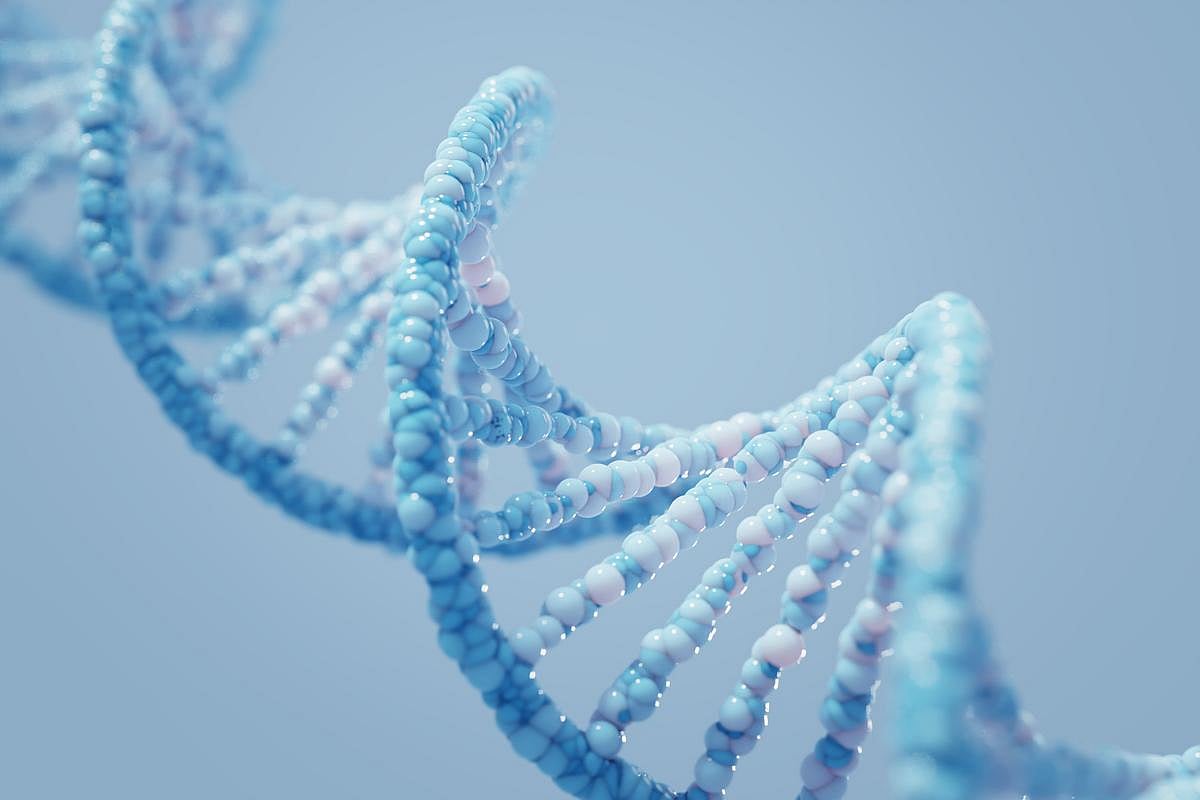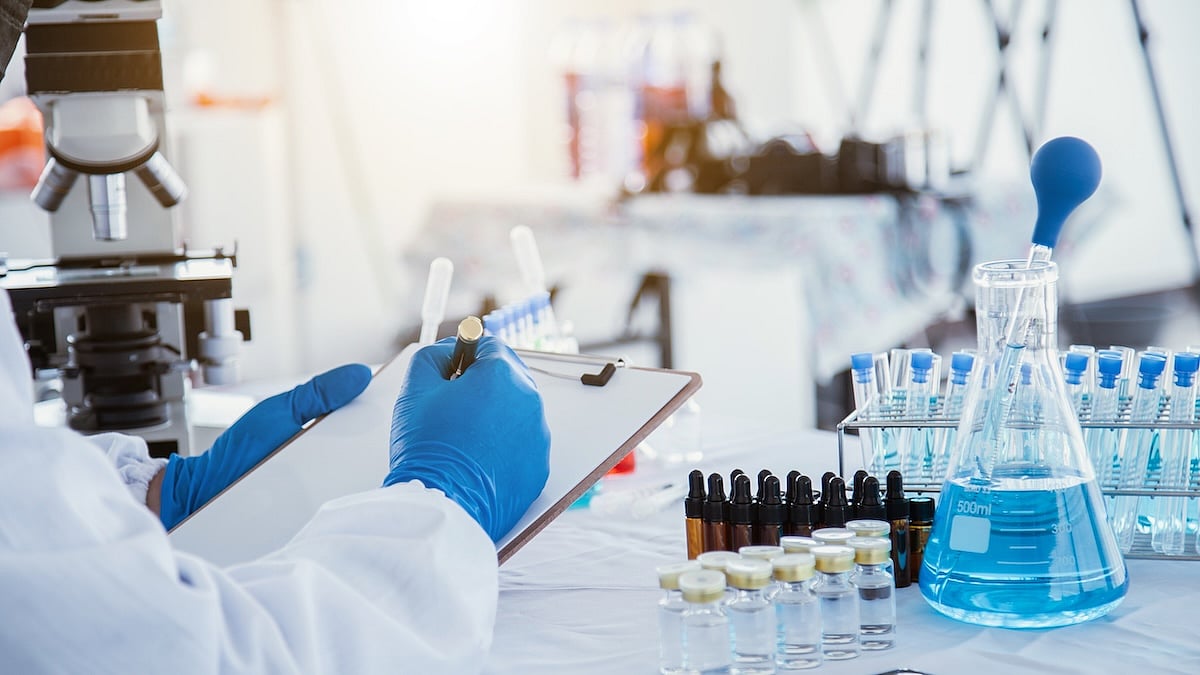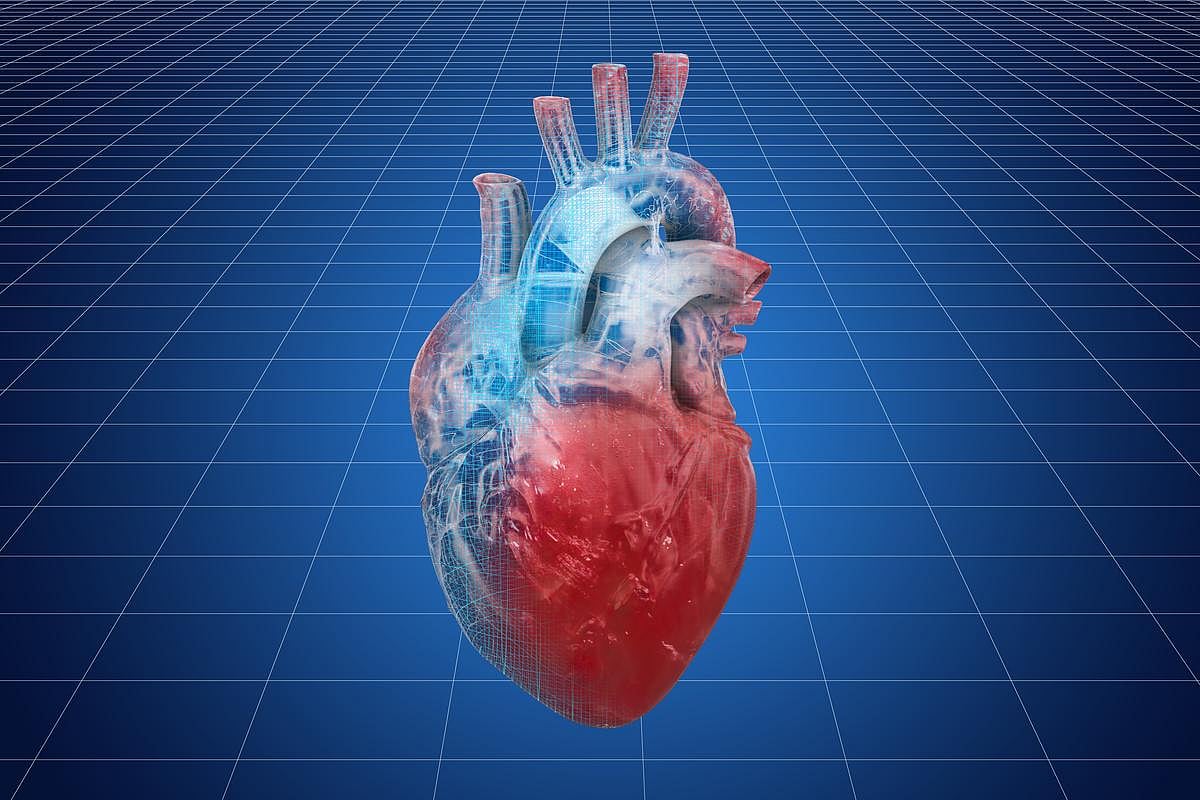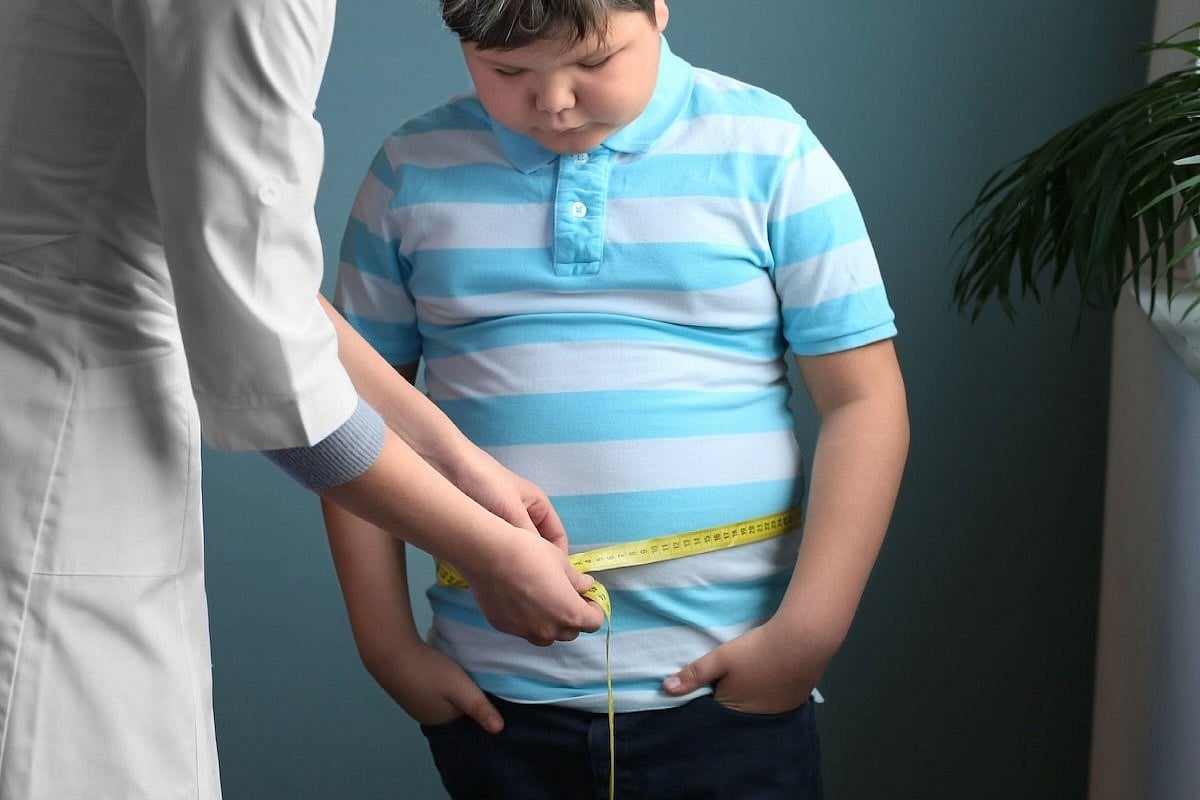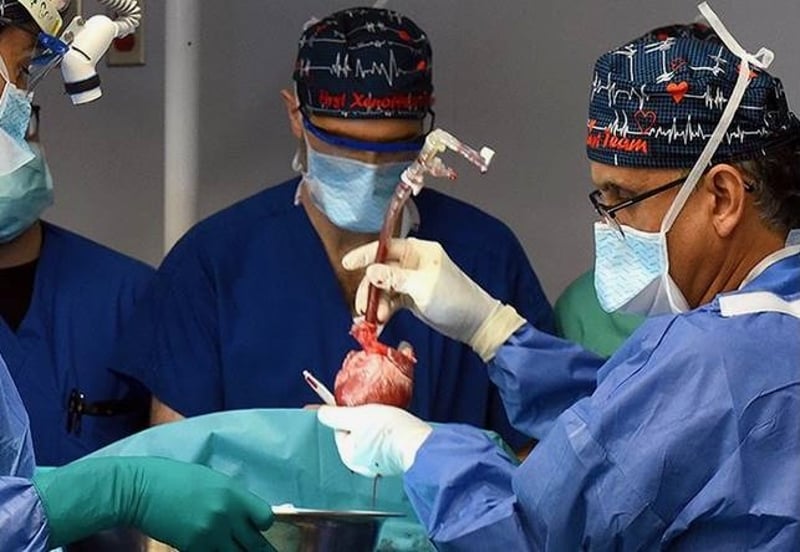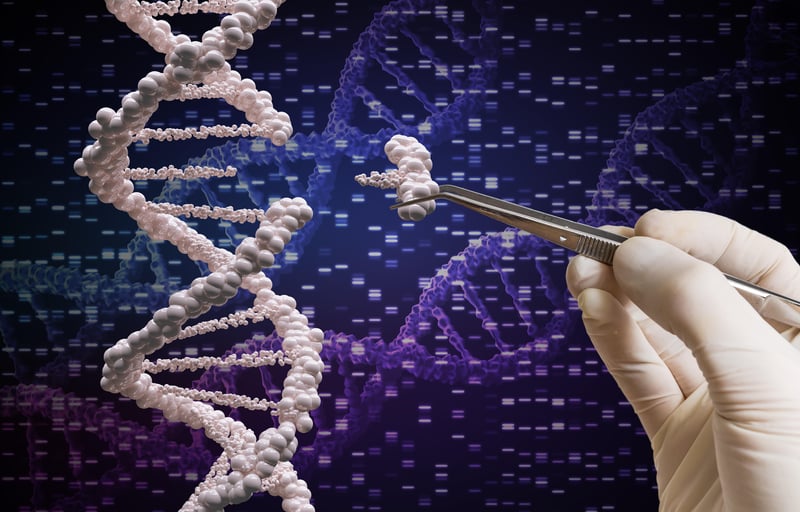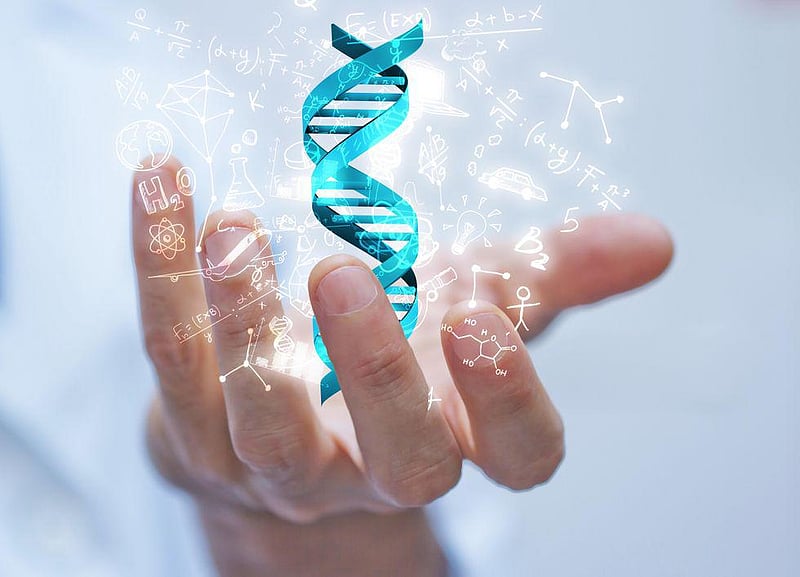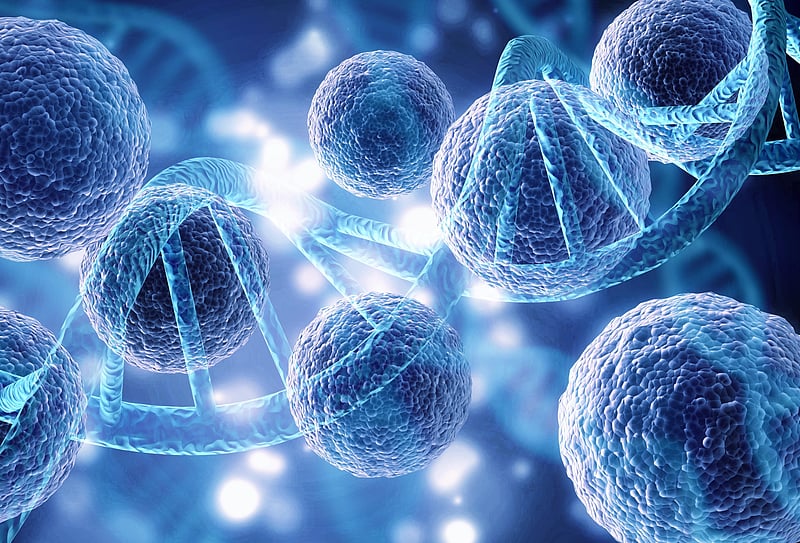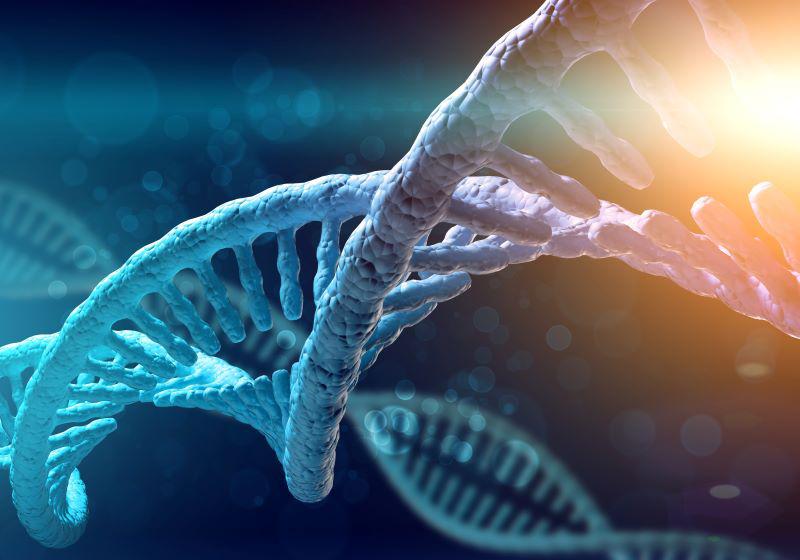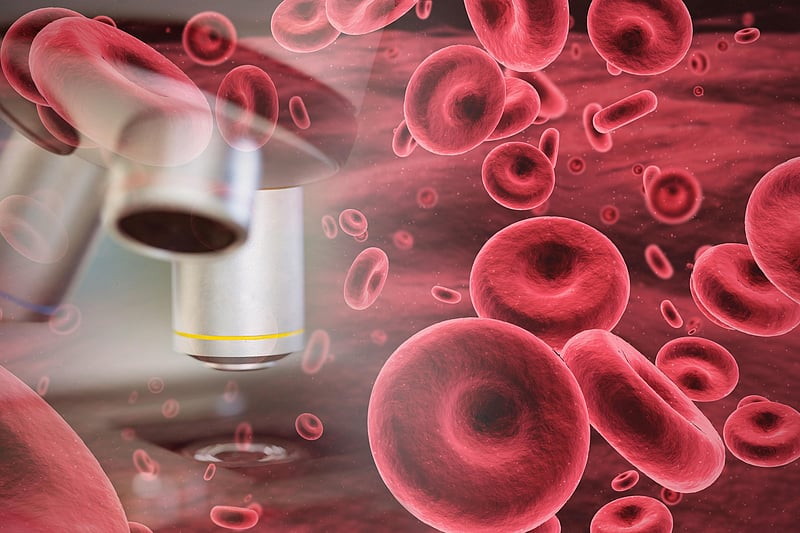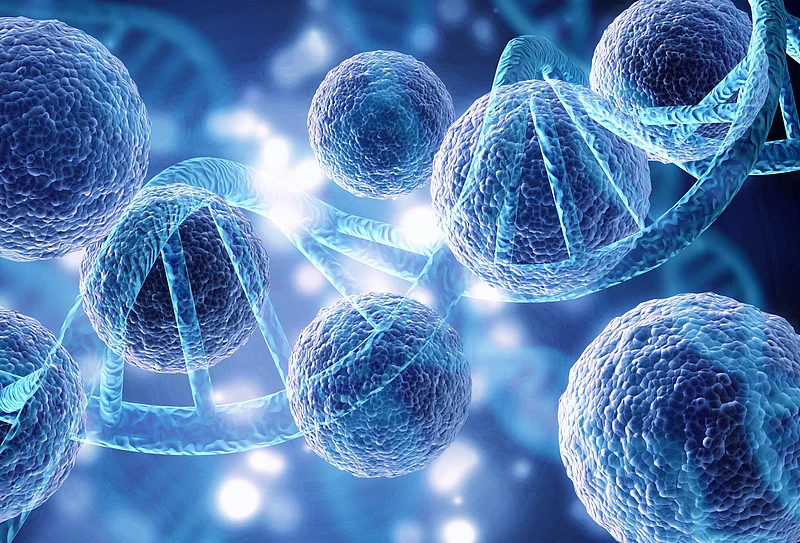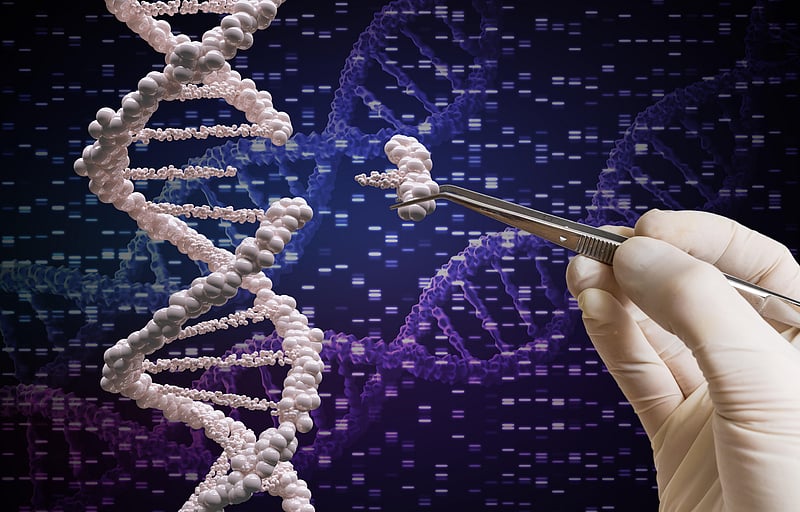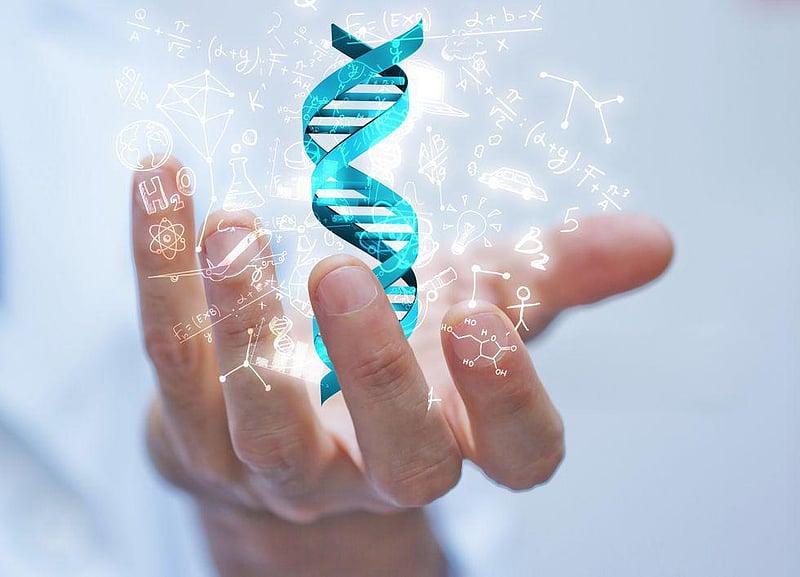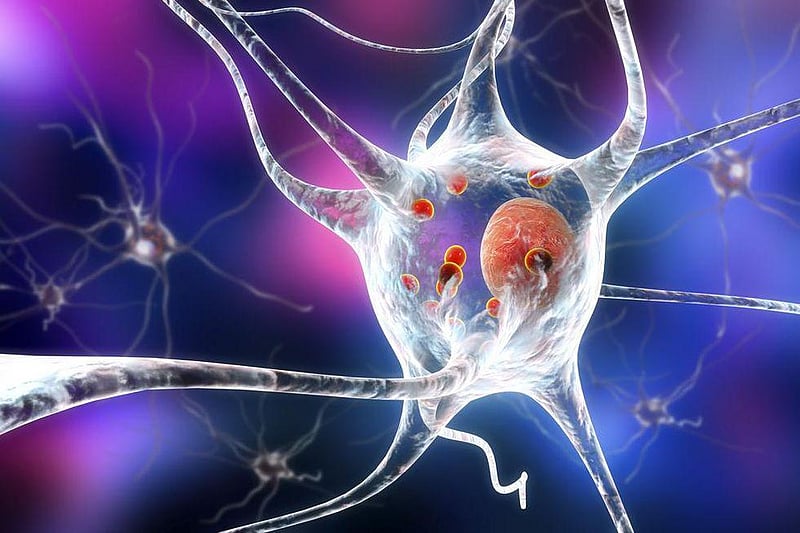Get Healthy!
Results for search "Gene Therapy".
Health News Results - 47
A new gene-editing strategy may one day help many people with rare genetic diseases.
In a new study published Wednesday in the journal Nature, researchers say this new approach could make future treatments easier and less costly to develop, especially for conditions caused by a certain type of genetic error.
"...
- I. Edwards HealthDay Reporter
- |
- November 21, 2025
- |
- Full Page
Eliana Nachem is taking a brave step once unthinkable for the 11-year-old girl — she’s starting sixth grade, with dreams of becoming an artist.
As a baby, Eliana lived in complete medical isolation, after her 2014 diagnosis at 3 months of age with ADA-SCID, more popularly known as “Bubble Boy” disease.
Kids with the rare disorder are born with a broken i...
- Dennis Thompson HealthDay Reporter
- |
- October 16, 2025
- |
- Full Page
Chris Vogelsang has had a long and terrible fight with cancer.
Fourteen years ago, the 70-year-old man was first diagnosed with an aggressive form of lymphoma.
His cancer has since returned twice, fighting against several rounds of different treatments that included a full-blown stem cell transplant.
“My energy level was terrible. I was losing weight and had night sweats...
- HealthDay Reporter
- Dennis Thompson
- |
- April 21, 2025
- |
- Full Page
A patient has died while receiving Elevidys, a gene therapy for Duchenne muscular dystrophy, marking the first known death linked to the treatment.
The company behind the drug, Sarepta Therapeutics, said that the patient suffered acute liver injury, a known side effect, The Associated Press r...
- HealthDay Reporter
- I. Edwards
- |
- March 19, 2025
- |
- Full Page
Failing hearts nearly returned to full function in laboratory pigs after they received an experimental gene therapy.
New research shows the gene therapy didn’t just prevent heart failure from worsening in four lab pigs, but actually prompted hearts to repair and grow stronger.
...- HealthDay Reporter
- Dennis Thompson
- |
- December 10, 2024
- |
- Full Page
Bed sores can be more than debilitating and painful. Now a new study shows they can also dramatically impact a person’s recovery from a spinal cord injury.
“Our study found that patients with pressure ulcers [bed sores] regained significantly less motor function through one year after injury,” said researcher
Gene therapy could help obese kids avoid health problems associated with excess weight, including arthritis, a new, preliminary study in mice suggests.
The gene therapy prompts cells to convert inflammation-causing omega-6 fatty acids into beneficial omega-3 fatty acids, researchers reported Oct...
- HealthDay Reporter
- Dennis Thompson
- |
- October 15, 2024
- |
- Full Page
Most boys treated with breakthrough gene therapy for a rare but deadly brain illness are faring well six years later, two new reports find.
The 77 boys were treated for cerebral adrenoleukodystrophy (CALD), a formerly incurable and progressive genetic brain disease that typically led to a loss of neurological function and early death.
However, most patients treated with "eli-cel" g...
- HealthDay Reporter
- Ernie Mundell
- |
- October 10, 2024
- |
- Full Page
A new gene therapy approved earlier this year can serve as a sustainable single-dose treatment for people with hemophilia B, newly published clinical trial data shows.
People with hemophilia B saw their bleeding episodes drop by an average 71% following a single infusion of Beqvez (fidanacogene elaparvovec), researchers reported Sept. 25 in ...
- HealthDay Reporter
- Dennis Thompson
- |
- September 26, 2024
- |
- Full Page
Gene therapy may restore vision to children and adults robbed of their sight by a rare inherited condition called Leber congenital amaurosis, researchers report.
The illness is caused by mutations in the GUCY2D gene, which is critical to producing proteins that enable vision. People with this form of Leber congenital amaurosis (LCA1) typically lose their vision in early childhood. Just un...
- HealthDay Reporter
- Ernie Mundell
- |
- September 6, 2024
- |
- Full Page
There's more good news in the battle against sickle cell disease, with another trial finding CRISPR gene-editing therapy delivering impressive results for patients.
"It's encouraging that this gene-editing treatment continues to show promising efficacy for sickle cell patien...
- HealthDay Reporter
- Ernie Mundell
- |
- June 18, 2024
- |
- Full Page
Chlidren born deaf have had their hearing restored in both ears as a result of gene therapy, a new study reports.
All five children showed hearing recovery in both ears, with dramatic improvements in speech perception and the ability to locate the position of a sound.
Two of the children also gained an ability to appreciate music, and were observed dancing to music, researchers adde...
- HealthDay Reporter
- Dennis Thompson
- |
- June 5, 2024
- |
- Full Page
An experimental gene therapy could one day provide a first-ever cure for genital and oral herpes, researchers report.
The gene therapy removed 90% or more of oral herpes infection in lab mice, and it also suppressed how much virus an infected an...
- HealthDay Reporter
- Dennis Thompson
- |
- May 15, 2024
- |
- Full Page
Opal Sandy was born into a world she could not hear.
The British baby girl, now 18 months old, had a rare genetic condition called auditory neuropathy that interrupted nerve impulses that travel from the inner ear to the brain. She'd been fitted with a cochlear implant, but it could only help so much.
Then came a breakthrough gene therapy
An injectable gene therapy caused measurable improvements in vision among a small group of people with inherited blindness, an early-stage clinical trial says.
Researchers recruited 14 people with Leber Congenital Amaurosis (LCA), a rare genetic condition that causes babies to lose some or all of their sight from birth.
Eleven of the 14 had measurable improvements in the vision of o...
- HealthDay Reporter
- Dennis Thompson
- |
- May 6, 2024
- |
- Full Page
Five of six Chinese children born deaf due to a rare genetic defect now have the ability to hear, thanks to an experimental gene therapy.
The therapy involved a hollowed-out virus loaded with a healthy version of the gene responsible for producing otoferlin, a protein necessary for the transmission of sound signals from the inner ear to the brain.
Doctors injected the virus into the...
- HealthDay Reporter
- Dennis Thompson
- |
- January 25, 2024
- |
- Full Page
The U.S. Food and Drug Administration on Friday approved two milestone gene therapies for sickle cell disease, including the first treatment ever approved that uses gene-editing technology.
Casgevy, developed by Vertex Pharmaceuticals of Boston and CRISPR Therapeutics of Switzerland, is the first medicine available in the United States to treat a genetic disease using the CRISPR gene-edit...
- HealthDay Reporter
- Dennis Thompson
- |
- December 8, 2023
- |
- Full Page
MONDAY, Nov. 13, 2023 (Healthday News) -- Two new gene-editing treatments that target dangerously high levels of cholesterol in people with a genetic predisposition to the condition were found safe and effective in new, groundbreaking research.
While powerful drugs like statins can help manage cholesterol in most people, they can't treat those who have genes that predispose them to heart ...
- HealthDay Reporter
- Robin Foster
- |
- November 13, 2023
- |
- Full Page
Gene therapy has restored mobility in mice with completely severed spinal cords, researchers report.
The mice regained the ability to walk, with gait patterns resembling those of mice that resumed walking naturally after only partial cord injuries, the investigators found.
This happened because the new gene therapy used techniques to not only repair spinal cord tissue, but also to d...
- HealthDay Reporter
- Dennis Thompson
- |
- September 27, 2023
- |
- Full Page
A second human patient has received a genetically altered pig heart as he battles the ravages of end-stage heart disease.
The 58-year-old man, Lawrence Faucette, received the pig organ at the University of Maryland Medical Center in Baltimore.
The medical team was the same one that performed the first pig transplant with another patient in January 2022.
"We are once again off...
- HealthDay Reporter
- Cara Murez
- |
- September 25, 2023
- |
- Full Page
A type of gene therapy that precisely "edits" a key bit of DNA might offer a new way to treat sickle cell disease -- a painful inherited condition that largely strikes Black children and adults.
That's according to a new study in the New England Journal of Medicine desc...
- HealthDay Reporter
- Amy Norton
- |
- August 31, 2023
- |
- Full Page
For people with severe alcohol use disorder, a new gene therapy trial could lead to an effective treatment that would involve chemically rebalancing the area of the brain associated with addiction.
"With alcohol alone, there's generally more than 100,000 deaths [in the United States] per year,"said
Two new studies using CRISPR gene editing offer potential new treatments for Alzheimer's disease.
"A pipeline of potential new treatments offers hope for the Alzheimer's and dementia community,"said Maria Carrillo, chief science officer for the Alzheimer's Association. "The progress and approvals we...
- HealthDay Reporter
- Cara Murez
- |
- July 17, 2023
- |
- Full Page
A clinical trial that's attempting to discover a cure for sickle cell disease has found a new gene therapy to be safe and successful in four patients.
Two of the patients were treated at Cleveland Clinic Children's in Ohio, and doctors there are hopeful that their positive results will be borne out in future research.
"New treatments like this are critical for people who have sickle...
- HealthDay Reporter
- Cara Murez
- |
- June 12, 2023
- |
- Full Page
Millions of stray cats roam the world over, and surgical sterilization has long been the primary method of population control.
But a small new study shows promising results for a one-and-done contraceptive injection.
Researchers say this first-of-its-kind approach appears safe and effective.
"A non-surgical contraceptive that could result in lifetime sterility following a...
- HealthDay Reporter
- Alan Mozes
- |
- June 6, 2023
- |
- Full Page
An exceptionally pricey gene therapy cure for sickle cell disease could soon be available, but it's not clear whether insurance companies will balk at the cost and deny coverage.
On the surface, the gene therapy does not appear as cost-effective as the grinding medical care that sickle cell patients now receive, according to a new analysis.
Gene therapy applied just once to a sickle...
- HealthDay Reporter
- Dennis Thompson
- |
- May 31, 2023
- |
- Full Page
"Zinc fingers"might sound like the world's worst candy bar, but these human proteins might prove key to treating complex genetically driven diseases.
A new artificial intelligence program is poised to enable the simple production of zinc fingers, according to research co-led by the N...
- HealthDay Reporter
- Dennis Thompson
- |
- January 26, 2023
- |
- Full Page
Ten children with an especially rare and hard-to-treat form of "bubble boy" disease are living normal lives after receiving a new gene therapy approach, researchers say.
Experts said the findings are a major advance for children with the disease -- a subtype of severe combined immunodeficiency (SCID).
SCID refers to a group of rare genetic diseases that cause babies to be born ...
- HealthDay Reporter
- Amy Norton
- |
- December 22, 2022
- |
- Full Page
Patients with a high-risk bladder cancer now have a new option to treat it.
The U.S. Food and Drug Administration on Friday approved a gene therapy called Adstiladrin, which is designed to work for patients who have what's called high-risk non-muscle-invasive bladder cancer (NMIBC) that hasn't responded to the standard treatment, Bacillus Calmette-Guérin (BCG), but hasn't spread. BCG i...
- HealthDay Reporter
- Cara Murez
- |
- December 19, 2022
- |
- Full Page
An experimental gene therapy that's applied as a skin gel appears to heal wounds caused by a rare and severe genetic skin disease.
Experts called the findings "remarkable," and said they bring hope of a better quality of life to children and young adults living with the condition, called dystrophic epidermolysis bullosa (DEB).
The disease affects about 3 out of every 1 million peopl...
- HealthDay Reporter
- Amy Norton
- |
- December 15, 2022
- |
- Full Page
People with one form of the genetic blood disorder hemophilia now have a one-time treatment with a $3.5 million price tag.
The U.S. Food and Drug Administration approved the new gene therapy Hemgenix on Nov. 22. Soon after, drugmaker CSL Behring revealed its cost.
The company said its drug would ultimately reduce health care costs because patients with the genetic disorder would ne...
- HealthDay Reporter
- Cara Murez
- |
- November 23, 2022
- |
- Full Page
Doctors are hopeful that an innovative treatment performed before birth may help children born with the rare genetic, and often fatal, condition called Pompe disease.
A thriving Canadian toddler is evidence that treatment while still in the womb offers better outcomes.
Doctors from the United States and Canada published a case study Nov. 9 in the
Gene editing has for the first time produced modified immune cells finely honed to target and attack cancer cells, researchers say.
A team used the gene editing tool CRISPR to alter immune cells drawn from 16 patients who had a variety of solid cancers, including colon, breast and lung.
According to a report in the journal Nature, the genes of these immune cells were edited...
- HealthDay Reporter
- Dennis Thompson
- |
- November 10, 2022
- |
- Full Page
An experimental gene therapy offers hope for rapid improvement in the night vision of adults who have a congenital form of childhood-onset blindness, researchers report.
In this ongoing clinical trial at the Scheie Eye Institute in the Perelman School of Medicine at the University of Pennsylvania, in Phi...
- HealthDay Reporter
- Cara Murez
- |
- October 13, 2022
- |
- Full Page
People with hemophilia B could find their bleeding risk dramatically reduced with just one injection of an experimental gene therapy, a new study reports.
Hemophilia B is a rare and inherited genetic disorder in which people have low levels of the
An experimental gene therapy for spinal cord pain shows promise in mice, researchers say.
About half of spinal cord injury patients have neuropathy, which is chronic or debilitating pain, tingling, numbness or muscle weakness caused by damaged or malfunctioning nerves.
Treatment of neuropathy can be challenging. For...
- HealthDay Reporter
- Robert Preidt
- |
- May 13, 2022
- |
- Full Page
An experimental cream-based gene therapy may soon become the first U.S. government-approved means for treating a rare and devastating skin disease that produces "butterfly children."
Patients with recessive dystrophic epidermolysis bullosa (EB) are called butterfly children "because their skin...
- HealthDay Reporter
- Dennis Thompson
- |
- March 29, 2022
- |
- Full Page
Science could be well on its way to a cure for type 1 diabetes, as researchers hone transplant therapies designed to restore patients' ability to produce their own insulin, experts say.
At least one patient - a 64-year-old Ohio man named
Scientists who conducted the first gene editing in ticks say this line of research could lead to new ways to reduce tick-borne diseases in humans.
Ticks can transmit a wide number of diseases to people -- including Lyme disease, babesiosis and Rocky Mountain spotted fever -- but genetic knowledge about ticks is cu...
- HealthDay Reporter
- |
- February 16, 2022
- |
- Full Page
For countless teens, it's the scourge of adolescence. But researchers say the discovery of new genetic variants associated with acne could help doctors identify people at high risk and perhaps point the way to new treatments.
"Despite major treatment advances in other skin conditions, progress in acne has been limited," said Catherine Smith, co-author of a
More than 10 years after Doug Olsen underwent an experimental gene therapy that turned his T-cells into cancer killers, his leukemia has vanished, University of Pennsylvania doctors report.
"I'm doing great right now. I'm still very active. I wa...
- HealthDay Reporter
- Robin Foster and Robert Preidt
- |
- February 2, 2022
- |
- Full Page
A gene therapy that could provide a permanent cure for sickle cell disease continues to show success through a third wave of patients, researchers report.
The therapy, LentiGlobin, restored normal blood function in 35 sickle cell patients who had the one-time procedure, according to clinical trial findings published Dec. 12 in the
Gene therapy shows promise in reducing, and even halting, potentially life-threatening bleeding events in people with hemophilia, researchers report.
Hemophilia A is the most common inherited bleeding disorder, affecting one in 5,000 males worldwide. It's caused by a missing coagulation factor called FVIII.
The current standard of care involves regular infusions of the FVIII protein...
- HealthDay Reporter
- Robert Preidt
- |
- November 18, 2021
- |
- Full Page
Gene therapy might soon offer a new option for children with a rare genetic disorder that damages tissues throughout the body, researchers are reporting.
In a study of eight children with the condition, called Hurler syndrome, researchers found that the gene therapy was safe over two years. It also showed potential for beating the current standard treatment, stem cell transplantation.
...- HealthDay Reporter
- Amy Norton
- |
- November 18, 2021
- |
- Full Page
An experimental gene therapy to boost the effectiveness of the Parkinson's drug levodopa yielded promising results in mice, researchers report.
As the loss of dopamine-releasing neurons advances in late-stage Parkinson's, levodopa is less able to ease movement problems caused by the disease, which is a progressive disorder of the nervous system.
But a Northwestern University team fo...
- HealthDay Reporter
- Robert Preidt
- |
- November 4, 2021
- |
- Full Page
Nine of 10 patients with so-called "bubble boy" immune disease who received gene therapy about a decade ago are still disease-free, researchers report.
The gene therapy was developed at the University of California, Los Angeles (UCLA), to treat the rare and deadly immune system disorder formally known as adenosine deaminase--deficient severe combined immunodeficiency (ADA-SCID).
It'...
- HealthDay Reporter
- Robert Preidt
- |
- October 21, 2021
- |
- Full Page
Multiple sclerosis (MS) patients undergoing a treatment that depletes a type of immune cell that fuels MS attacks still have a strong response to mRNA COVID-19 vaccines, a new study finds.
"The message from this study is clear -- it is worthwhile for patients with MS receiving [anti-CD20] treatment to get a COVID-19 vaccine, which will prevent severe illness," said researcher E. John Wher...
- HealthDay Reporter
- Steven Reinberg
- |
- September 16, 2021
- |
- Full Page

